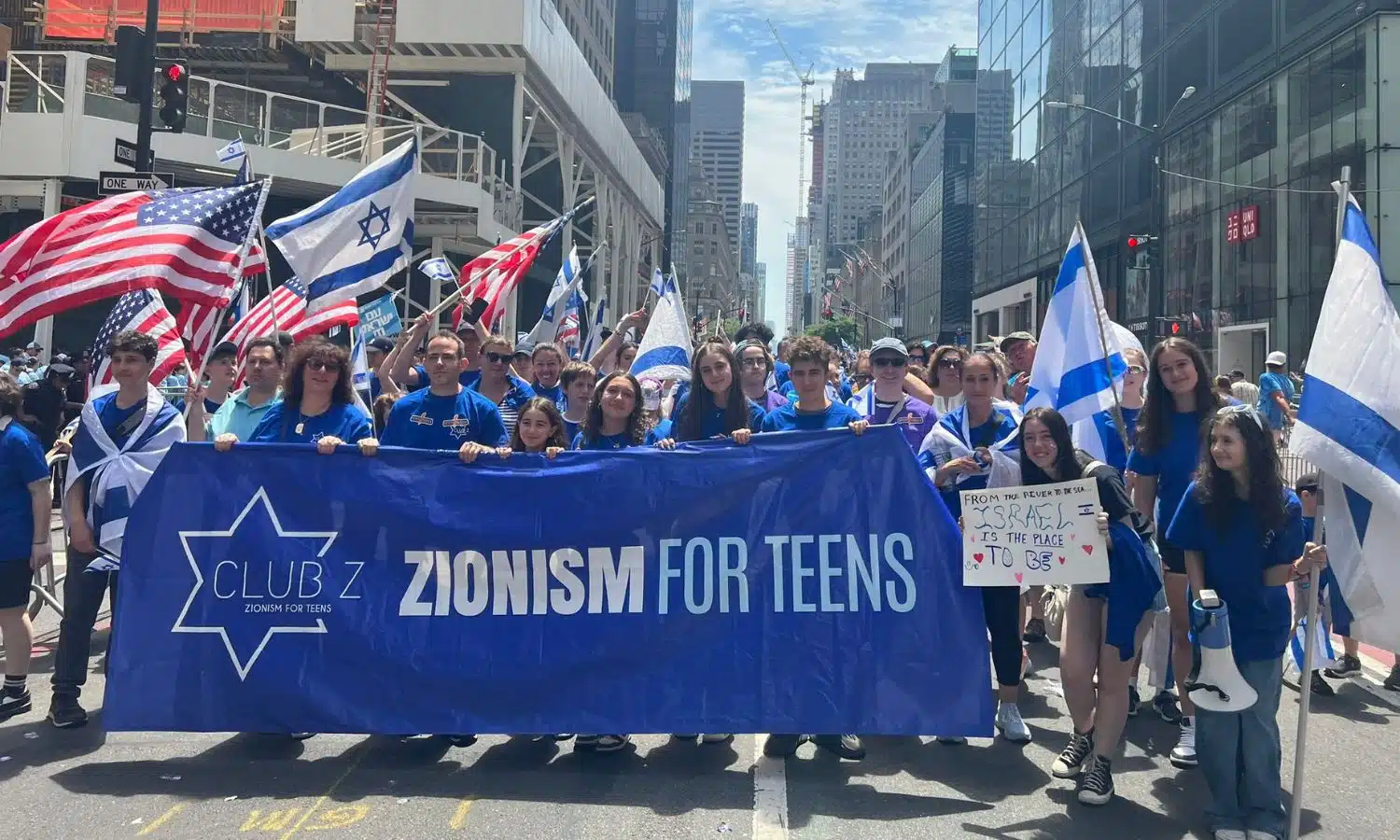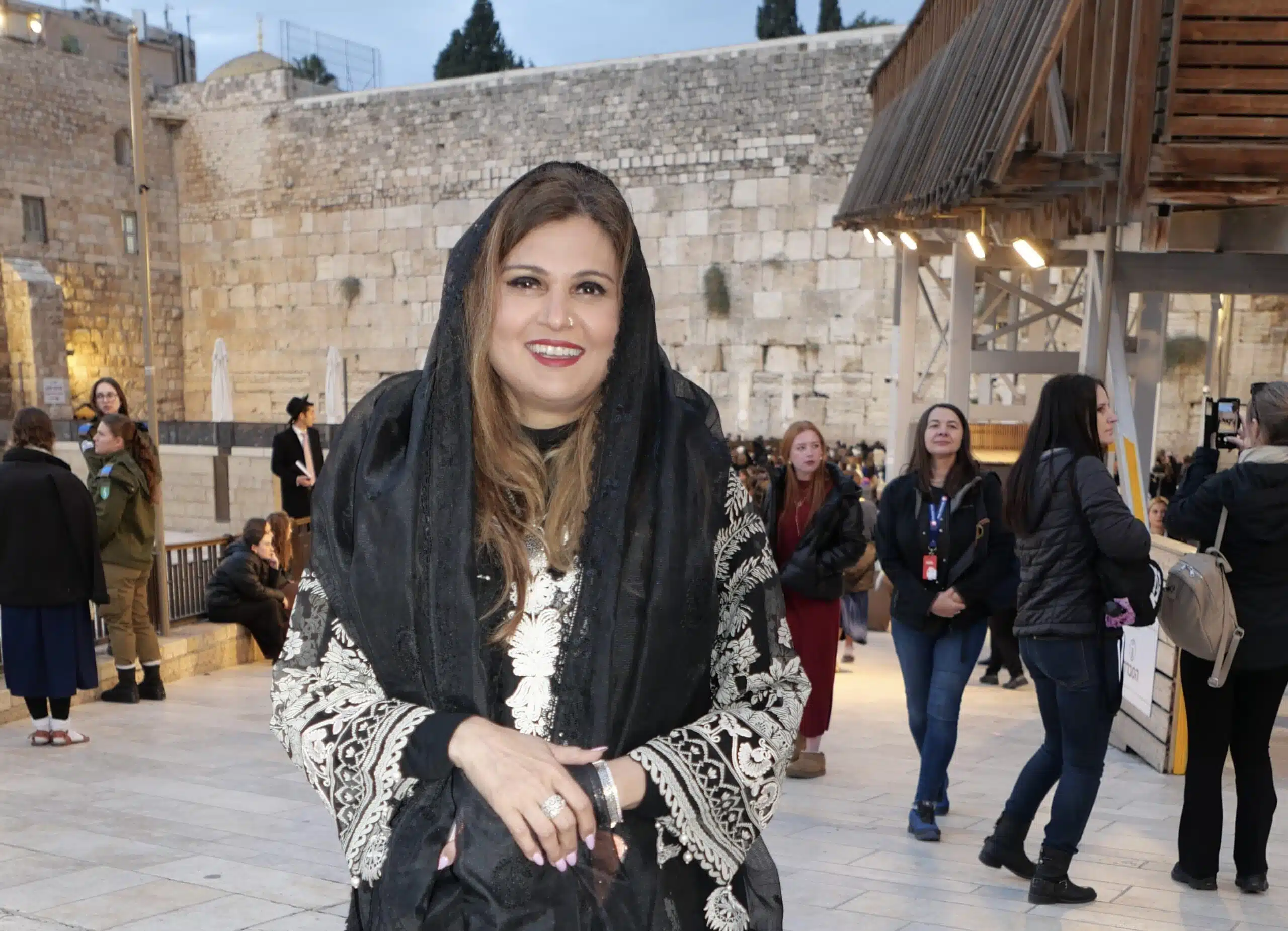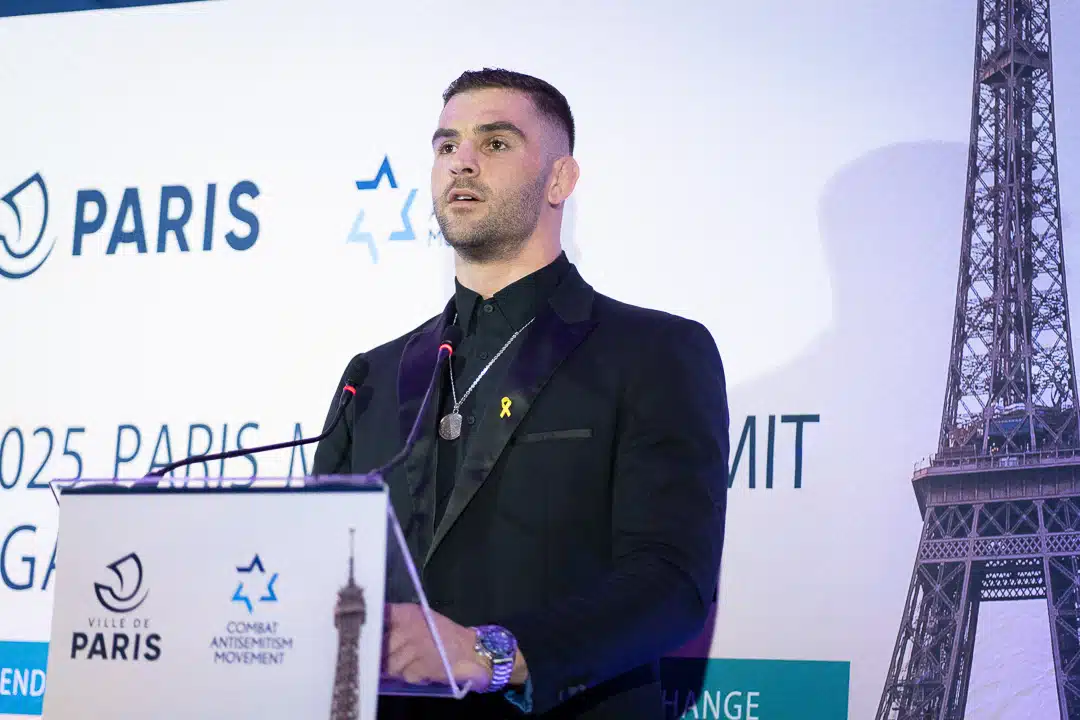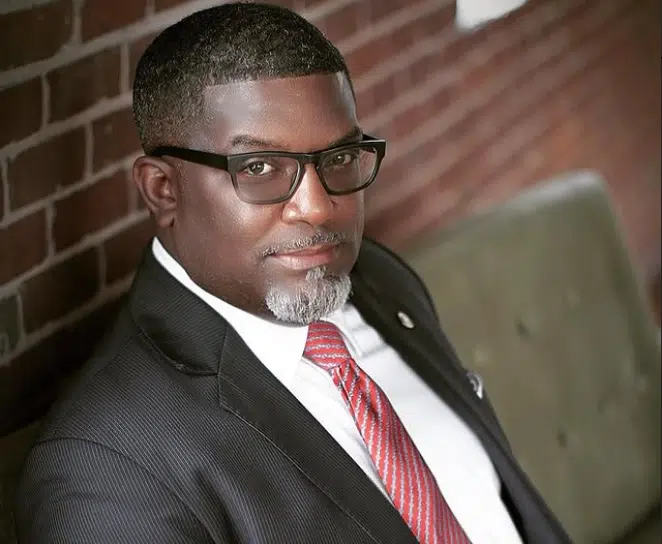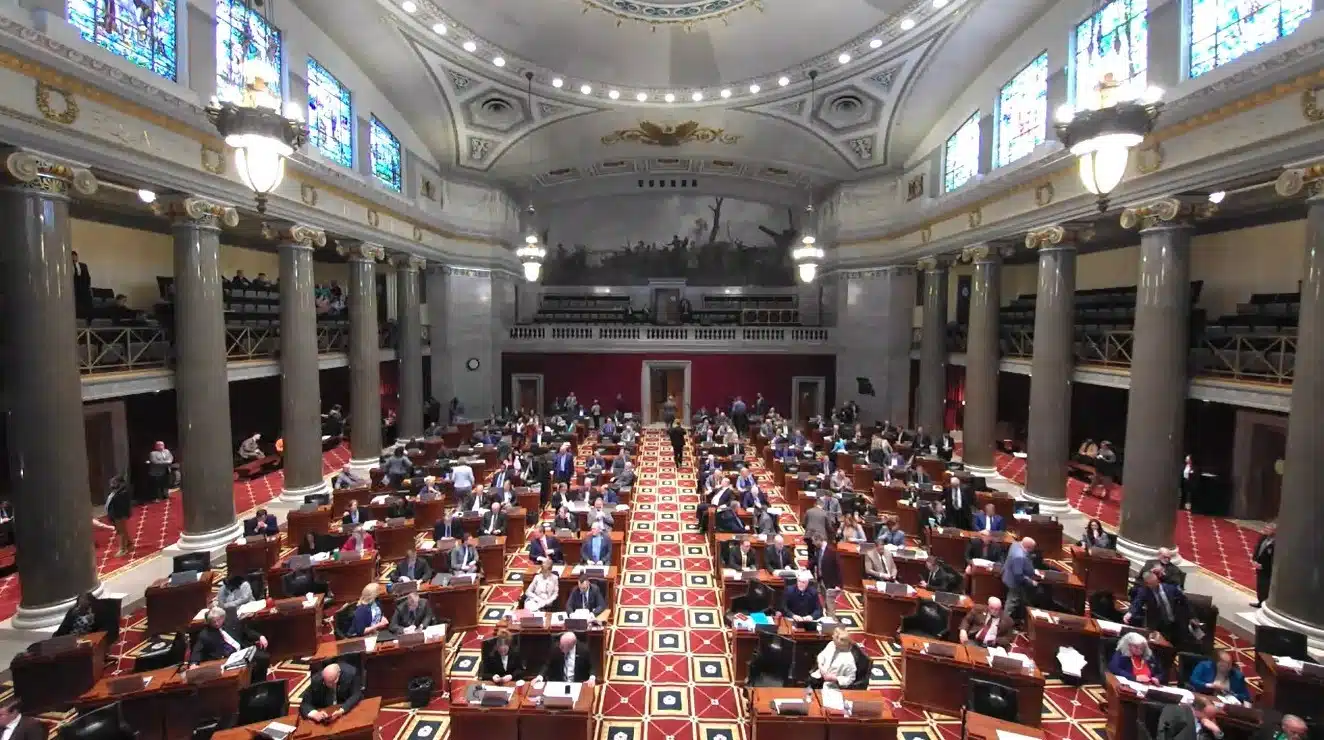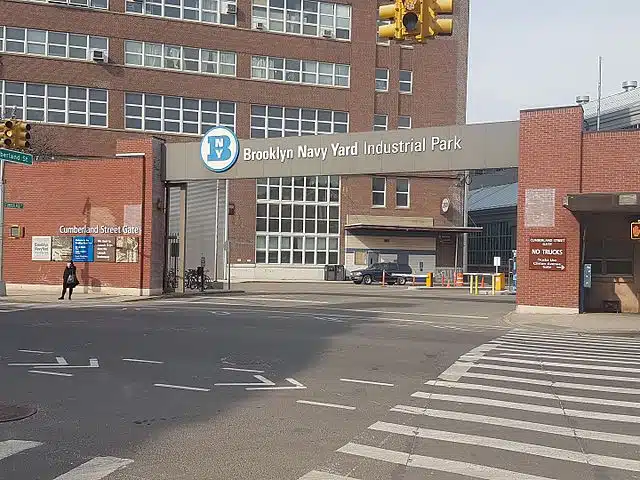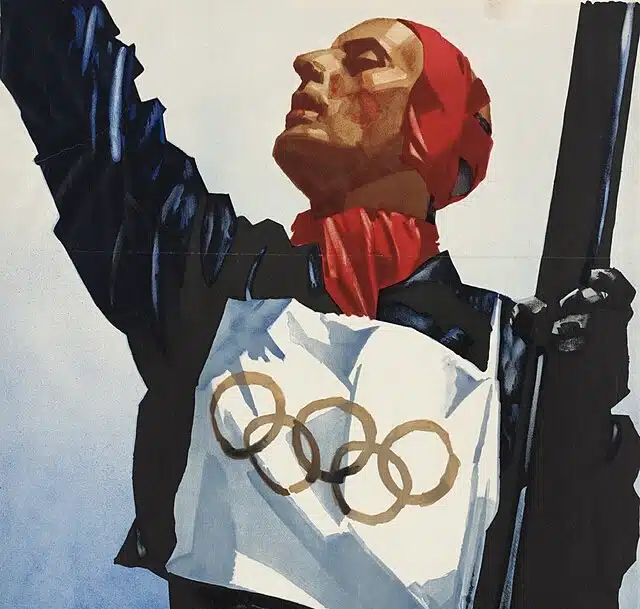|
Getting your Trinity Audio player ready...
|
Training Jewish teens to be effective advocates for themselves, the Jewish people, and State of Israel is the guiding mission of Club Z, an American non-profit organization established in 2015.
Club Z Founder and Executive Masha Merkulova recently spoke with Combat Antisemitism Movement (CAM) Editor-in-Chief Barney Breen-Portnoy about her group’s work, which has become even more urgent in the aftermath of the October 7th massacre in Israel and the global surge of antisemitism it set off.
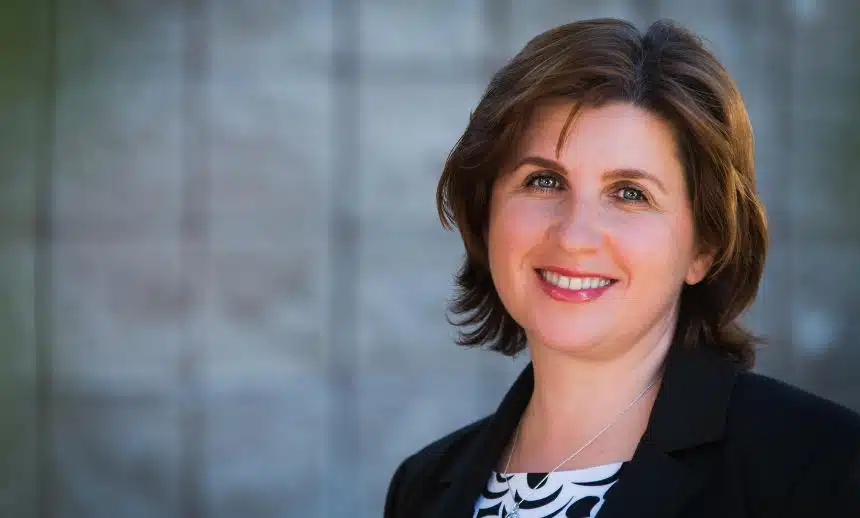
What motivated the founding of Club Z?
“I grew up in the Soviet Union, and I didn’t know I was Jewish until I was 16. When I was 19, my family and I emigrated to California, to the San Francisco Bay Area. With time, I started getting more and more involved in the Jewish community. Probably around 2010 or 2011, I was at the AIPAC national conference. I was very excited, I’d never been there before. President Obama spoke — it was great. Then, Benjamin Netanyahu gets on stage, and he’s speaking. Not even 15 feet away from me, this young lady gets up and takes off her suit jacket with a bright pink shirt underneath. And it’s a lady from Code Pink who starts yelling, ‘Bibi is a murderer. Israel is an apartheid state. The IDF is committing genocide.’ I I thought to myself, ‘What is going on? Why are American Jews yelling at the prime minister of Israel and accusing [the] IDF of atrocities?'”
“So, that prompted me on this journey to try to find out what it is — that they are making completely opposite conclusions based on the same information from me, from you, and from all other normal people. And a lot of it was the fact that within the Jewish educational system, we’re not preparing our kids with the Israel narrative. We’re connected through the hearts. We sing songs, and we celebrate Yom Ha’atzmaut, and we eat falafel. But we don’t prepare them for what every single American Jew has realized since October 7th.”
“I come from a background in healthcare, and the cheapest way to treat an illness is to prevent it. And the easiest way to prevent misinformation is to actually give information and discuss it, and talk about it, and unpack it. The whole purpose of Club Z, when we started, was that we know that campuses are hostile to Jewish students. We expect them to stand up for Israel. We’re sending them to war, but we’re not giving them any tools, we’re not preparing them. We’re just saying, ‘Go sing Oseh Shalom. Talk about peace, talk about innovation.’ And the other side is saying, ‘You planted your cherry tomatoes on our land’ … and our kids have nothing to say to that because they never were taught the facts of where Jews come from. Why are we in the Middle East? Why aren’t we in Uganda? The fact that Judaism is not a religion — we’re a people. We’re a civilization. We predate all of these social constructs.”
“So that is the work of Club Z. This is where kids learn that they matter, that they can make a difference. My shtick is that I tell them, ‘Please, please, please don’t stand up for Israel.’ Israel is thousands of miles away, with a powerful military and good intelligence. Israelis can take care of themselves. But if you understand that you’re a Jew and if you understand that you’re part of the Jewish people, you’re going to have the same destiny as the Jews in Israel. Then you’re not standing up for Israel, you’re standing up for your own dignity — for your family, for your people. So, instead of it being an obligation, it becomes an inspiration. ‘Of course, I’m going to be counted because I am defending my own identity. Even though I don’t have any family in Israel, it doesn’t matter. When Israel is attacked, I’m attacked.'”
Can you speak to the programming offered by Club Z?
“Ideally, kids start Club Z in eighth or ninth grade, at the latest. What we offer in the beginning is basic training. Basic training is a series of ten sessions, once a month, and it’s just the essentials of what you need to know when someone tells you, ‘Jews have no right to be in Israel.’ You will actually have the knowledge and understanding that this is not true. Because it’s basic training, because it’s only ten sessions, we don’t really expect them to become leaders of their people, their cohort, their friends. But they will at least know who they are and where they come from and have a basic understanding of anti-Israel arguments and what is behind them. In this basic training, they also get basic advocacy skills and learn to recognize bias. They will be able to identify inconsistencies. We start to work on the critical thinking skills.”
“The year starts with a shabbaton. We host two shabbatons: one on the West Coast and one on the East Coast. And then, they come once a month for this basic training.”
“The leadership tribe that we offer is much more intense: Again, it also starts with the shabbaton, but then they meet every other week for three hours, and that’s where they really dive much deeper into the topics, and that is where the skill-building begins. There are debate workshops and a public speaking class. Some of them who like to write take a persuasive writing workshop. They go through this program for two to three years, and at the end of the program, there’s a final exam that they need to pass to get the graduation certificate.”
“Every year, we host a national conference, and that’s kind of the jewel of our programming. That’s where all of the kids come together, and we bring incredible speakers, and the idea is to build a network — a power grid — of kids who are not afraid to stand their ground. If a lot of Jewish parents got panicked phone calls from their kids this year on college campuses, this was not the case with our kids. Our kids called their parents to tell them, ‘I’m fine. I’m okay. I know what I’m doing.’ I didn’t get a single phone call from a parent who said, ‘My kid doesn’t know what to do.’ I got phone calls with parents saying, ‘My kid is organizing, they are running for school senate, they’re putting together rallies, they’re putting together vigils.’ These are the kids who are on the front lines or doing things, the expectation is to be an activist.”
“There’s a lot of educational programing. There’s a lot of very smart Jewish students, but there’s not enough activists. We’re going to put them back in a line and say, ‘I will be a visible Jew, and I will hold my school accountable.'”
“I think it’s parental malpractice to send a kid to college and not prepare them. One of things we do with our leadership program is take them to anti-Israel events. They have to go to four or five anti-Israel events. If you ask the average American Jew how many times they go to anti-Israel events, they’ll tell you ‘zero.’ They’ll say, ‘I can’t. I’m going to get so upset, I’m going to start yelling.’ But you’re sending your kid to places — it could be an art class, or it could be a Middle Eastern studies class — where it’s guaranteed they’re going to come across a hostile professor who’s in a position of power, whose grade they need to get, and yet you’re putting them in a situation and you did not prepare them. How is this okay?”
How many people are involved in Club Z activities?
“We do a lot of community events and one-time workshops and lectures, so since October 7th we’ve had about 1,500 students. Because we also do community events, and we do parent activities, we’ve counted that 2,300 people came through our doors for different events. Geographically, we’re in California, in Los Angeles and the San Francisco Bay Area, and in New York, we’re in Brooklyn and Westchester. We’re also in Livingston, New Jersey, and Charlotte, North Carolina.”
How was Club Z’s work was impacted by October 7th?
“That’s the interesting part because our whole thing was to be prepared for October 7th, so Club Z was the first organization to mobilize. We held four rallies on October 8th. We held a rally in New York — we announced it, and a lot of organizations joined. We brought out 1,500 people that came to New York for the rally. We held rallies in Los Angeles, Silicon Valley, and in Charlotte.”
“The nice thing is that we have kids who have been approached by their high school peers and given classroom time: ‘Why don’t you take 20 or 30 minutes from the class to tell us about the Israel-Hamas war because everybody has questions, and you seem to know a lot about it.’ To date, we have 21 kids who’ve done it. That’s the multiplier effect of hundreds and hundreds of kids who are not Jewish, who don’t know anything, but actually got to hear accurate information.”
“A lot of what we did is participate in meetings of county and city councils, and school boards. We’ve given 90 speeches at various meetings. In North Carolina, there were two students who testified for the Shalom Act, and one of them was our student. In Chapel Hill, when the fraternity brothers were holding the American flag up, four of our kids were there with them. It’s about doing. The thing that changed on October 7th is that we’re much more exhausted because it’s been nonstop.”
What other initiatives or programs do you have in the works?
“Our basic training is a new program we’re rolling out, and the beauty of it is that we’re actually now positioned to bring it to other institutions. Say a synagogue wants to do it, but they’re not experts, they don’t have the bandwidth, they don’t know exactly what to say. We are the subject matter experts. We can come in and partner with the synagogue and run this basic training. We can open up the books: ‘Here’s our curriculum. Here’s our lesson plans, which one do you want?’ It’s a plug-and-play where we can adapt a curriculum to their needs because unfortunately, nine-and-a-half out of ten Jewish educators don’t know how to deal with Israel and with the conflict — but we do. We’ve been doing it for ten years. We have a proven track record.”
“So my invitation is for institutions to reach out to inquire how we can help them. And for parents, if you’re in one of our locations, sign up because you have nothing to lose. Again, it’s about individual empowerment — we want to give our kids confidence. You, as a parent, can do everything right, and still produce deeply confused young people. We don’t indoctrinate, but we also don’t complicate things more than they need to be complicated.”
To learn more about Club Z, please visit: clubz.org

